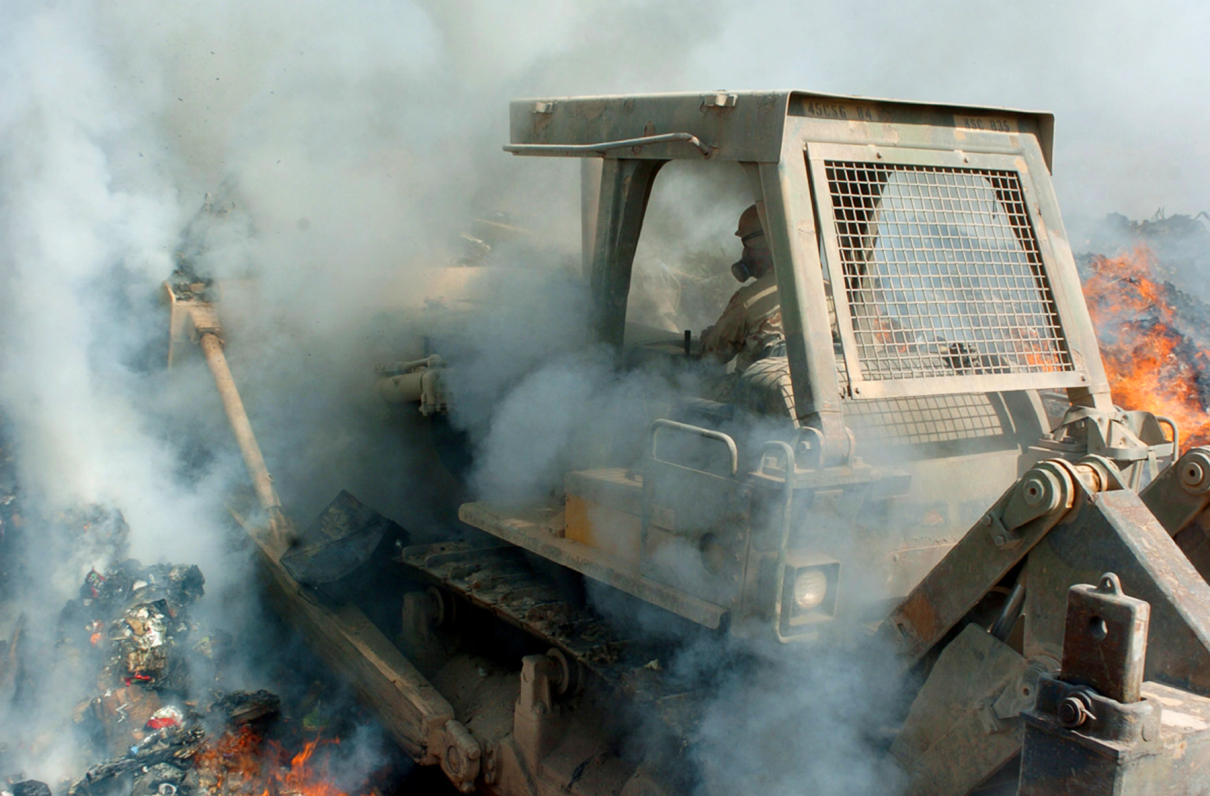Editor’s note: This article by Rebecca Kheel originally appeared on Military.com, a leading source of news for the military and veteran community.
Veterans with a rare lung disease could have an easier time collecting Department of Veterans Affairs disability benefits under proposed changes announced by the agency Wednesday.
The ailment, called constrictive bronchiolitis, or CB, is one of the burn pit-related illnesses covered under the PACT Act, the sweeping law passed two years ago that aimed to make it easier for veterans with certain diseases linked to toxic exposure to get VA care and benefits. But veterans with CB have reported still facing unique challenges to getting their benefits approved by the VA.
Now, the department is taking steps to remove the specific challenges veterans with CB face when applying for benefits.
"These steps are part of our comprehensive efforts to make sure that all those we serve -- including veterans who live with CB and their survivors -- get the benefits they deserve," VA Secretary Denis McDonough wrote in a letter to Senate Veterans Affairs Committee Chairman Jon Tester, D-Mont., released by the department Wednesday.
"Altogether, we are now delivering more care and more benefits to more veterans than ever before, but we will not rest until every veteran and survivor gets the care and benefits they deserve," McDonough added. "That is why today's proposed steps are so important, and that is why we will continue to do everything in our power to support veterans who live with CB and their survivors."
[RELATED: Veterans’ PACT Act Claims Continue to Rise, 2 Years After Law’s Passage]
CB, also known as obliterative bronchiolitis or bronchiolitis obliterans, is the narrowing or obstruction of the lungs' smallest airways -- the bronchioles -- by scarring or fibrous tissue. The scarring prevents oxygen exchange between the lungs and the bloodstream, causing extreme fatigue.
Other symptoms include shortness of breath and unexplained wheezing or dry cough in the absence of a cold or allergies.
CB was one of the 23 ailments that the PACT Act classified as presumed to be linked to military service, meaning the burden is no longer on veterans to prove their illness was caused by military service in order to be approved for benefits.
[RELATED: VA’s New Burn Pit Registry Aims for Data on 4.7 Million Veterans]
But two specific issues have made it difficult for veterans with CB to collect benefits even after the PACT Act, veterans and experts recently told lawmakers in a roundtable to mark the anniversary of the bill.
First, CB is the only PACT Act respiratory illness that does not have its own diagnostic code in VA disability claims systems. That means the VA must enter a diagnostic code for a similar disease into the system, a practice it says allows the department to still award benefits but which veterans and advocates say fails to recognize the true effect of their condition. Second, it is difficult to diagnose CB, with the only current way to definitively diagnose it being a painful, invasive lung biopsy.
To address those hurdles, the VA is taking steps to add a diagnostic code specifically for CB. The department is also moving to allow two additional medical tests to evaluate those with CB that will "make it easier for veterans to obtain an accurate disability rating," according to McDonough's letter. The tests are maximum oxygen consumption and metabolic equivalents, which respectively measure oxygen and energy usage during exercise.
The changes announced Wednesday are not taking effect immediately. The department must first go through the federal rulemaking process, a sometimes lengthy undertaking that includes soliciting public comment. The proposed rule change will be published in the Federal Register on Thursday, according to a draft published on the agency's website Wednesday.
[READ THE RULE: FederalRegister.gov]
In April, Tester led 17 other senators in calling on the VA to make the changes similar to those announced Wednesday after a PBS NewsHour story highlighted the issue.
A Senate aide told Military.com that, while not perfect, the VA's Wednesday announcement was a significant step forward and that Tester will monitor the implementation of the changes.
"Toxic-exposed veterans have waited decades to receive the benefits and health care the PACT Act provides, and it's critical VA is implementing the law the way veterans need and deserve," Tester said in an emailed statement Wednesday. "That means fixing outdated processes standing in the way of veterans and their newly expanded benefits. I'm glad to see the department answering my call to do this for veterans with constrictive bronchiolitis, and I'll keep holding VA accountable to roll out this law the way Congress intended."
Get Help Navigating VA Benefits
Questions about VA benefits? Start here. PREMIUM and LIFE Members have direct access to our webinar archive with to-the-point information on everything from claims and appeals to concurrent receipt to home loans and more.
